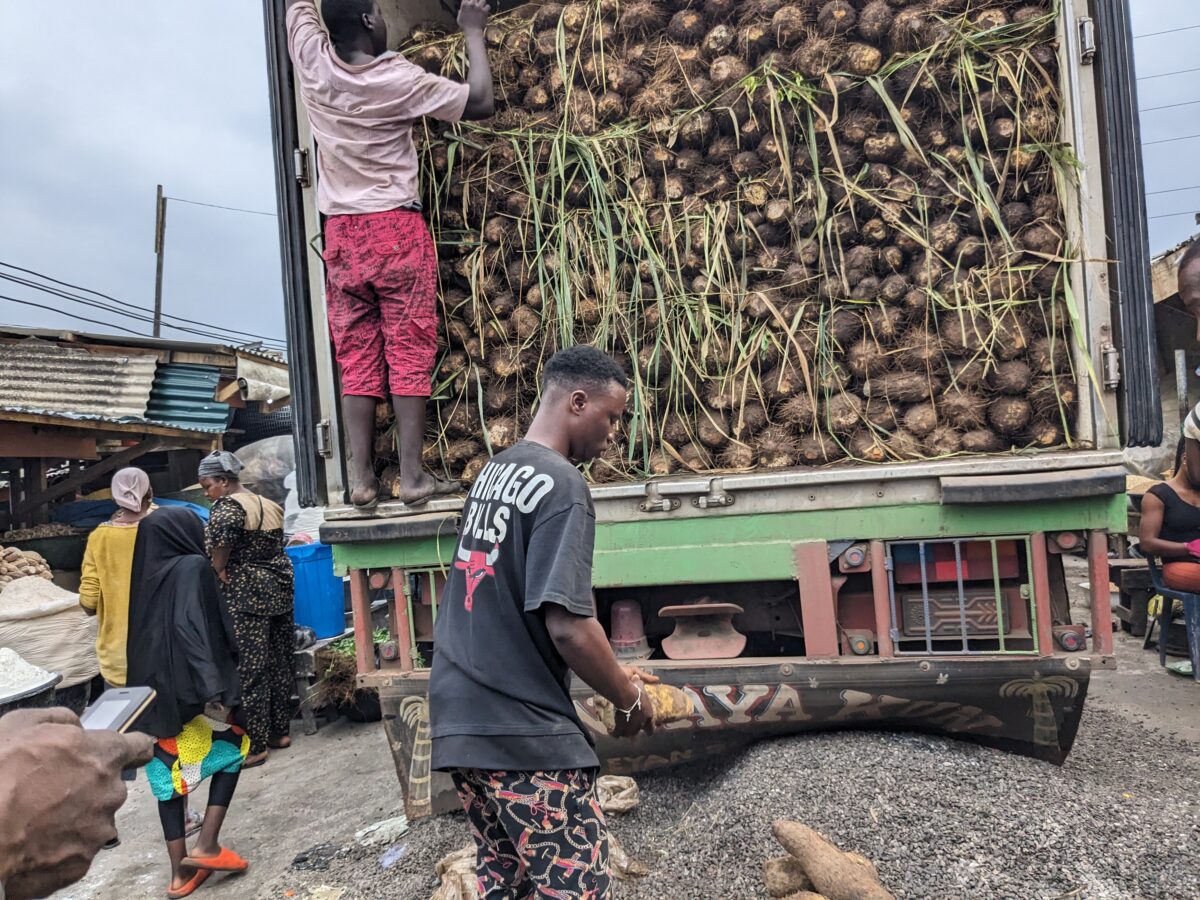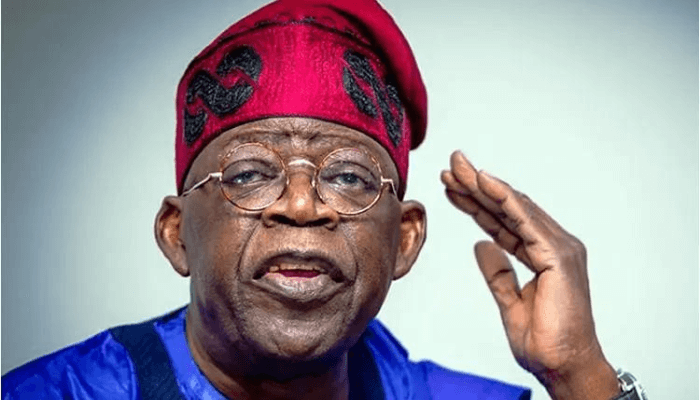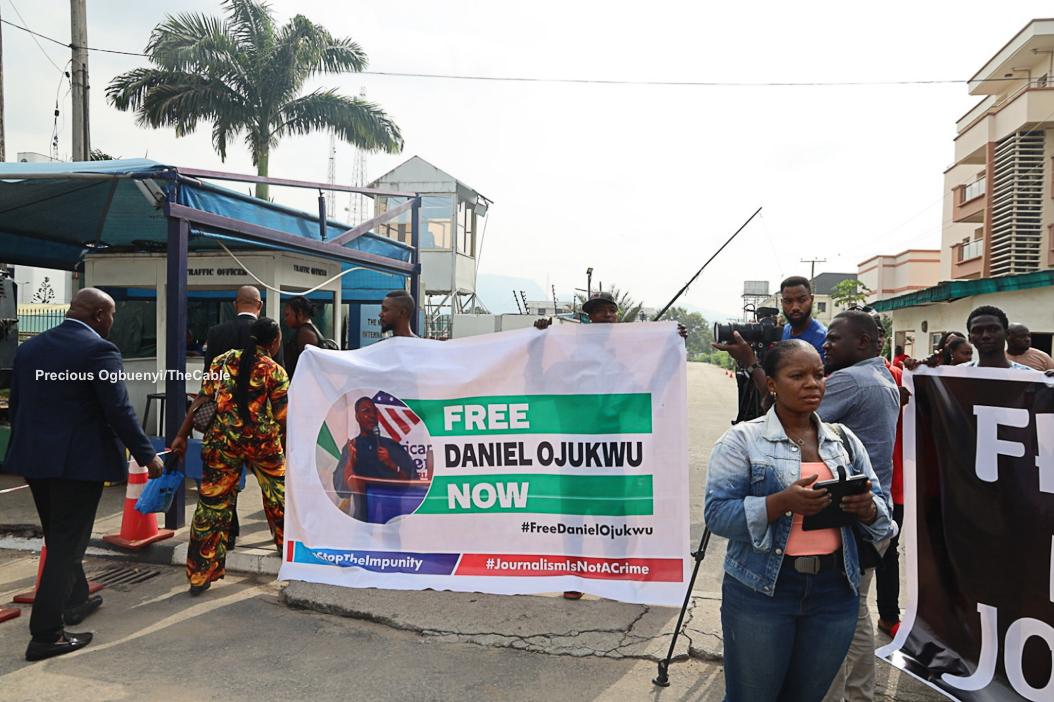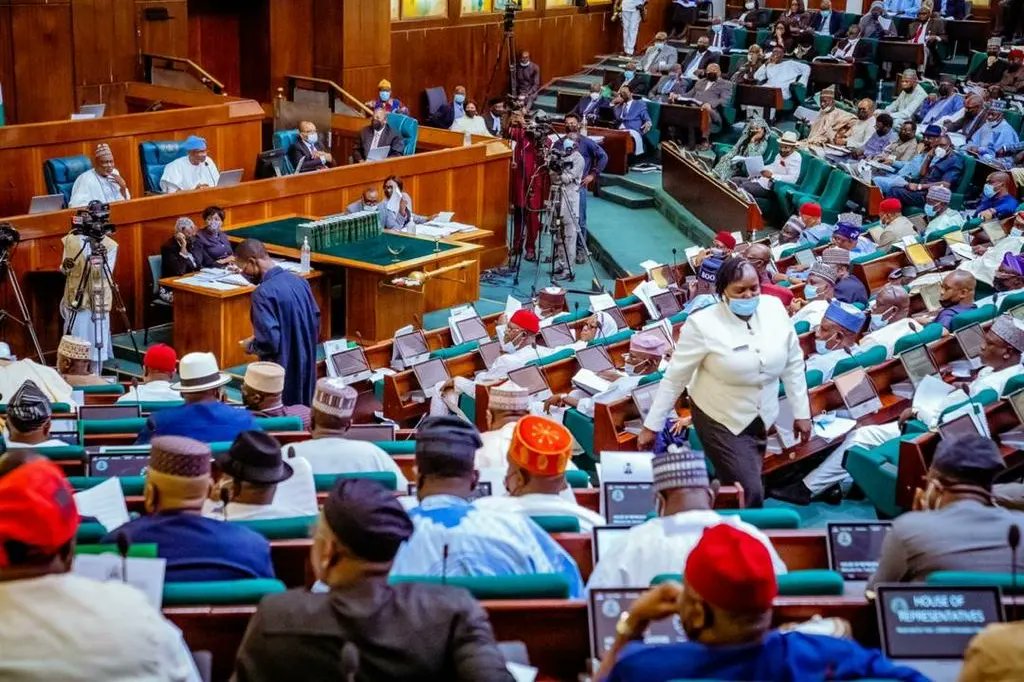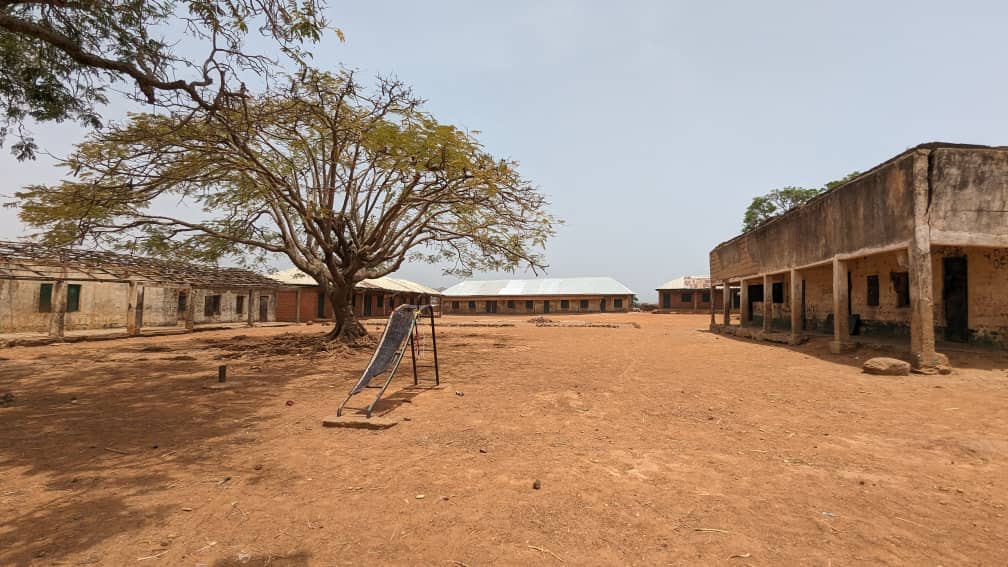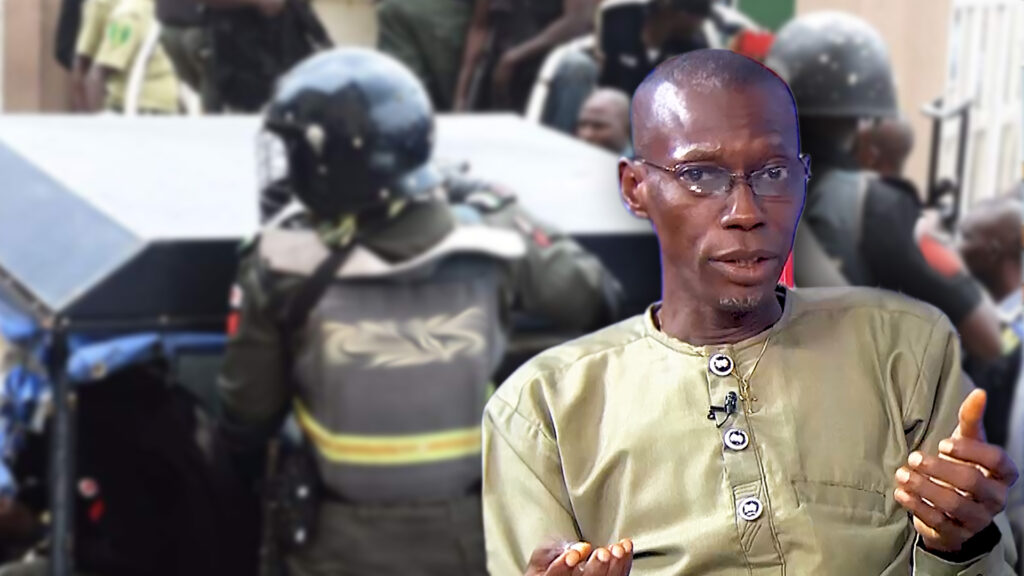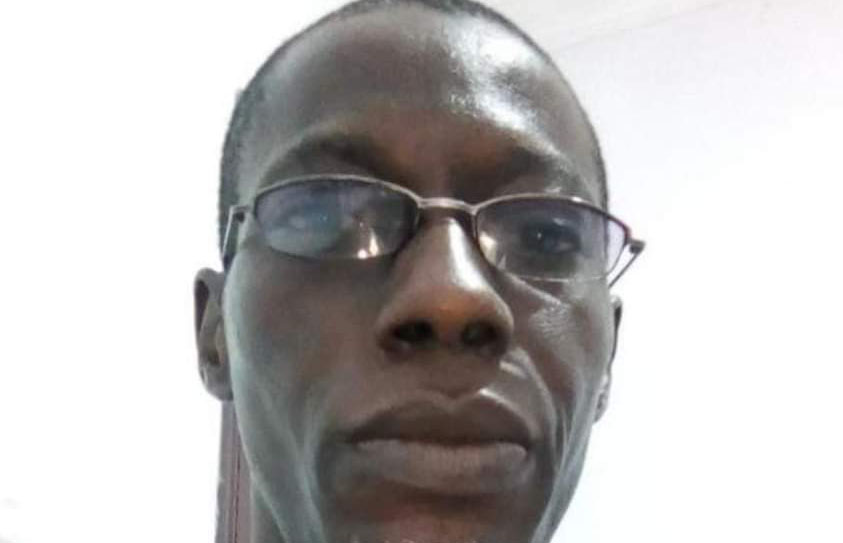Over time, drivers and farmers have expressed their frustrations over unchecked financial extortion by law enforcement officers on various highways in Nigeria, particularly in the South West, when transporting farm goods to markets and cities. To have a clear view of this endemic practice, SODEEQ ATANDA carpooled with two drivers on two trips from Osun State to Lagos State.
The sun was slowly dimming down in the western part of Osun State on July 24 when a war of words ensued between Tawakalitu Agbaje and Jimoh. The two were familiar faces connected by business interests. Agbaje is a market trader, dealing in farm crops, while Jimoh is an interstate driver.
“Security [officers] are on the road, petrol price has increased and you still want to pay N65,000 ($82.72)? Unless you add N5,000 ($6.36), tell your boys to offload your maize,” Jimoh sternly told Agbaje.
Agbaje became infuriated, citing the longtime dealings she has had with Jimoh. An ocean of pleadings by friends and bystanders could not persuade the irate woman from doing otherwise. Furious, Agbaje asked the loaders to offload the maize from Jimoh’s 18-passenger Toyota Hiace bus.
READ ALSO: REPORTER’S DIARY: 3 am in Ajegunle Market
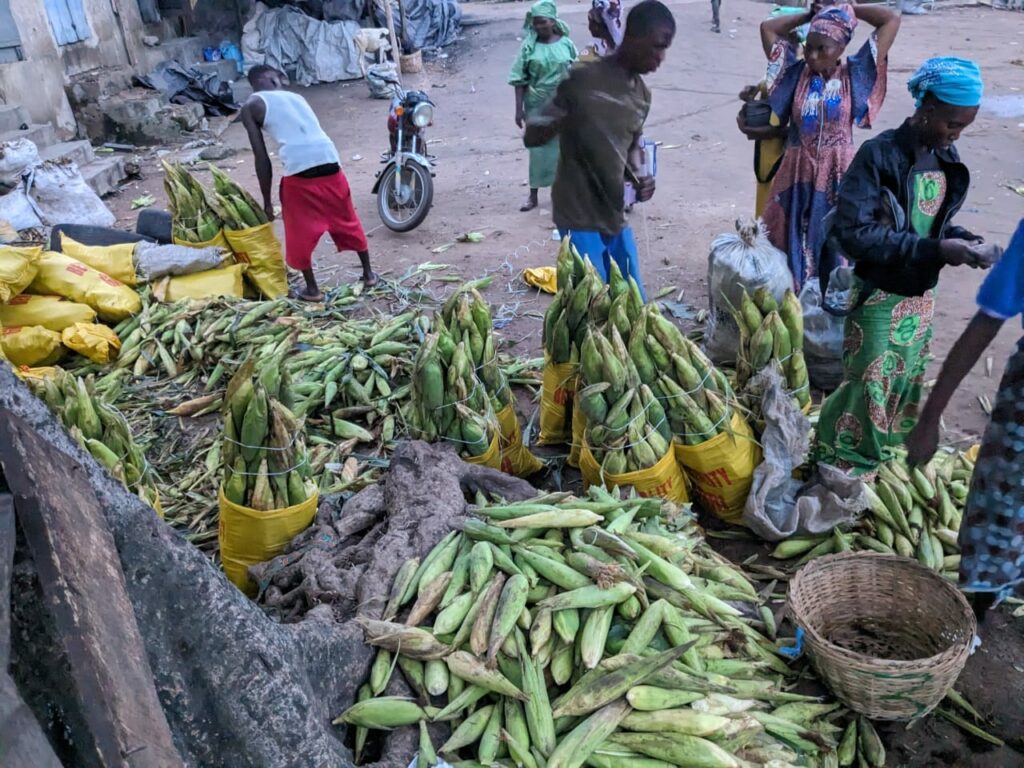
Those who had the woman’s ears had already failed in persuading her to renegotiate with the driver. I considered that it would be meaningless for me to get involved, so I watched Agbaje take her best decision. For context, she was my fixer for this story.
The maize was loaded into another vehicle of the same capacity. The disagreement was to my disadvantage and I started feeling queasy knowing that it would tell on our departure time. While the extended time afforded me the opportunity to have a good view of the interactions between different market players, I was reflecting on the risk of embarking on a night journey along a route that is constantly rumoured to be unsafe at night.
A day prior, a driver had been attacked along Lagos-Ibadan Expressway and dispossessed of his valuables by gunmen clad in army uniform, according to Agbaje. This further discomforted me. Regardless, I knew the journey had to take place.
By 9:49 pm on July 25, the journey that was supposed to have started four hours earlier commenced. Olodo bridge in Ibadan had collapsed; this made it impossible to travel through the route from Iwo in Osun State. Iwo-Oyo Road, which is a relatively long alternative route, came through for drivers as it linked to Ibadan.
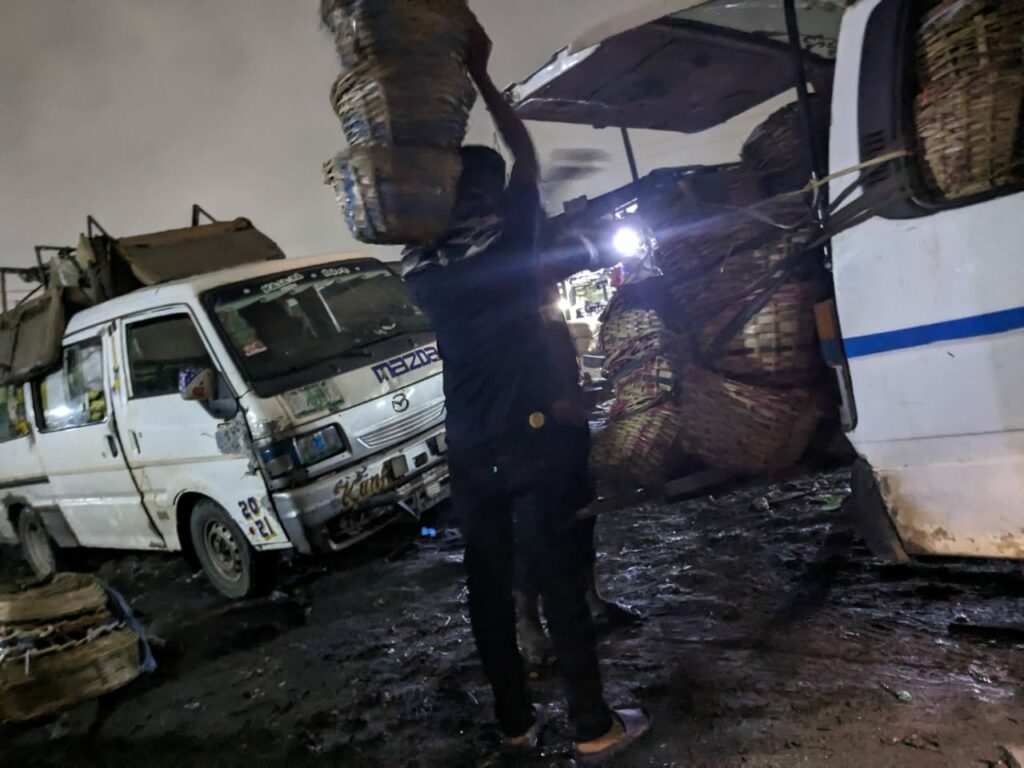
The second trip on July 27 took almost a similar dimension because the location of the checkpoints appeared to be a permanent arrangement.
TWO TRIPS: MONEY-SUCKING CHECKPOINTS
For drivers, they are alone in fighting for themselves in the face of official extortion and they either cooperate or have their time wasted and vehicles impounded arbitrarily. With Nigeria’s headline inflation now 24.08 percent as at July, the time seems right more than ever before to tell the story.
In the most recent data released by the National Bureau of Statistics, the most quoted statistical agency of the federal government, food and non-alcoholic beverages contributed 12.47 percent to the cumulative inflation rate.
The moment we left the heart of Iwo Town and got on Iwo-Oyo Road, the irritating sounds of combustion engines stopped. Our vehicle’s engine sounds and the pattering of raindrops continued though.
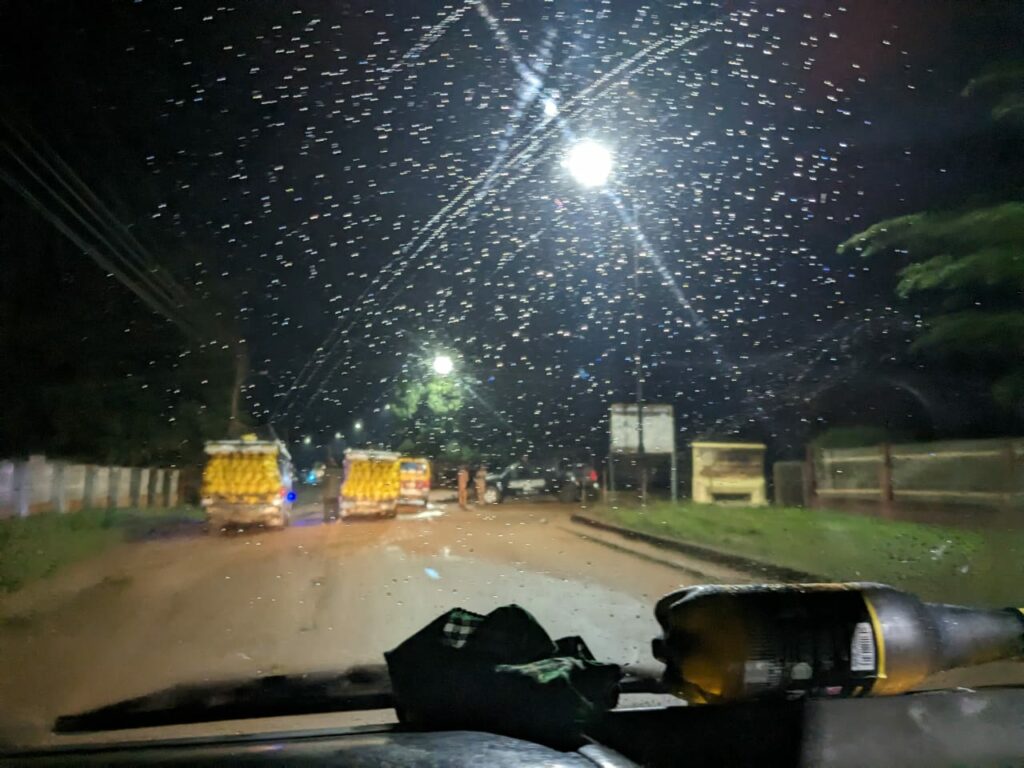
We were not following a direct route, so it took about three hours to get to Iwo Road in Ibadan. While my mind was unstable, the driver was busy stopping on a lane that laid in-between a lush of green forest to pick up some crawling snails.
“Wow! They are even on the road despite the fact that it is drizzling,” our new driver Mumini quipped, asking his motor boy to give him N200. “You would assume they are there for safety purpose, but that’s not their mission. If I don’t give them money now, they can waste our time and make a day’s job extend into two days or more.”
Mumini continued, “As a driver, you have no rights before police officers. If they request for money, you have to give them because the completeness of your documents will not save you. I don’t think there is anyone in Nigeria who doesn’t know this; it is a fact of life. It is generational as much as it is institutional.”
From Iwo to Ibadan, there were six checkpoints on our way, excluding two Amotekun — local security initiative of state governors in the region — checkpoints and some unofficial road blocks under the watch of street boys.
Immediately the driver took a turn onto Kaara Road in Iwo, a lone bright torch flashed in our eyes, implying that a checkpoint was near. I would soon discover that they were not police, but an unnamed group who usually disturbed to collect money from farm produce transporters. As we approached them, the driver increased the bus’ speed, scaring them away from the road.
Of the 13 checkpoints we saw on the road on the first trip, only two did not allow us to go without requesting or collecting a dime from the driver. The rest would not accept no for an answer. So, the driver had to pay them from his petty cash with N100 as the least currency denomination.
At the checkpoint in Awe, a suburb of Oyo Town, a short piece of drama played out after the driver gave the driver N200 with the expectation of collecting a N100 balance, but the officer was unwilling to give the balance.
“Officer, abeg give me my change jare. We all know this period no dey smile. Let’s just share the money. Give me my change,” the driver told the officer while peeping his head out of the bus as if he was haggling the price of a commodity with a roadside hawker. The officer budged and gave Mumini a N100 balance.
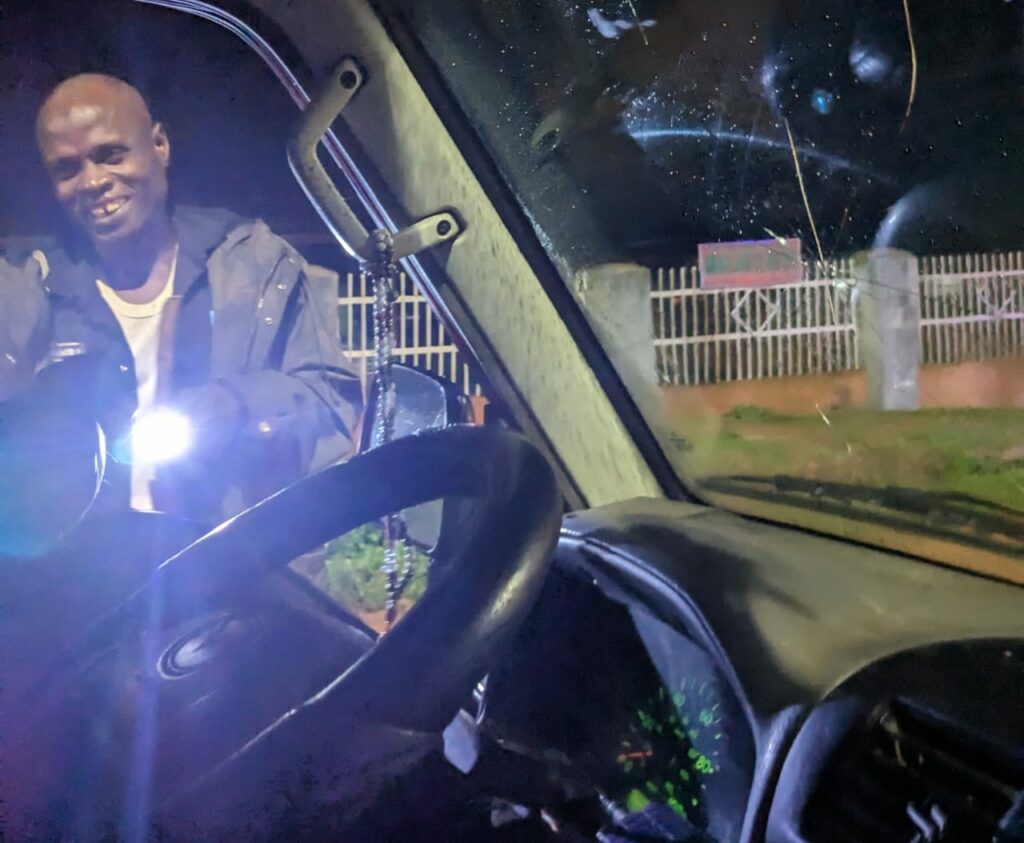
There were checkpoints at Awe, Akunlemu and Akinyele areas of Oyo Town. The amount paid at each checkpoint was not definite, but definitely not below N100. At Awe, police officers collected N100, but the driver parted away with N200 each at the Akunlemu and Akinyele checkpoints. Some officers of the Federal Road Safety Corps (FRSC) also stationed their own checkpoint at Akunlemu where the driver robbed their palms with N500.
However, the FRSC operated with a different modus operandi. They commandeered the driver to alight and he joined them at the back of his vehicle holding a booklet before handing them the money. Other places where we saw checkpoints were Ogere, Berger, Mushin, Boundary and Ajegunle.
On the whole, the law enforcement officers encountered on the road succeeded in padding their pockets with N2500 of the driver’s money.
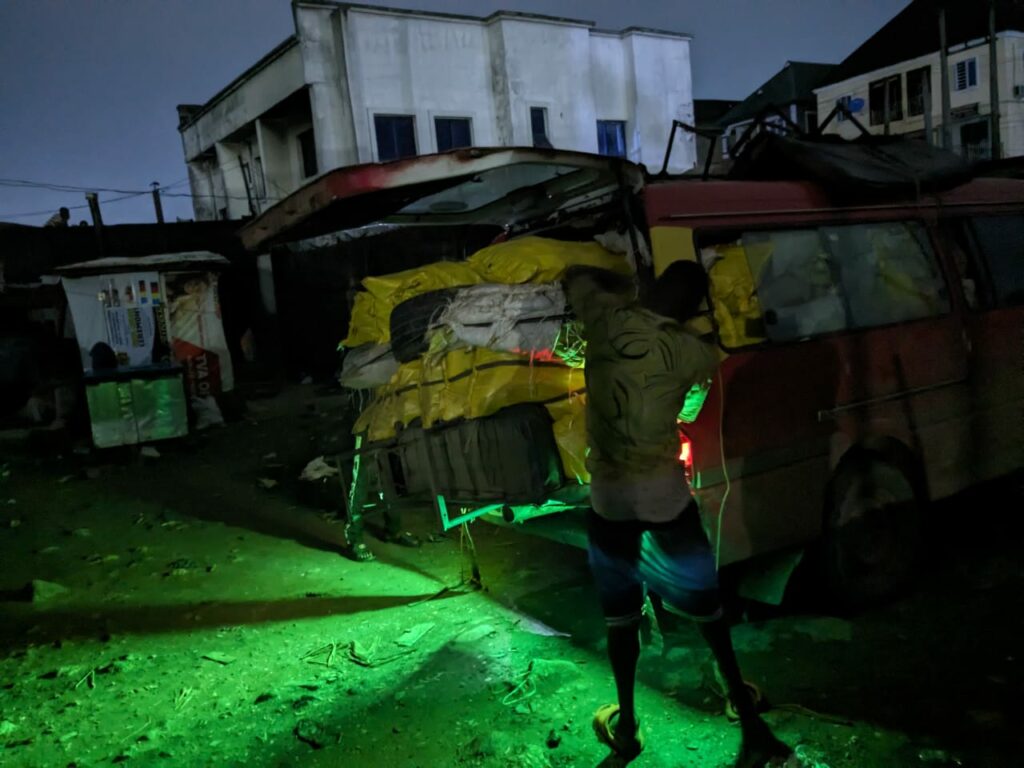
On the second trip, we travelled on the same route. There was a slight increase in the amount of money extorted from Hammed, our driver. This time, the bus conveyed an admixture of okra and pepper from Iwo to the same market in Lagos.
| S/N | CHECKPOINT | AMOUNT (N) |
| 1 | After Oloogun Village | 100 |
| 2 | Awe | 200 |
| 3 | Akunlemu | 200 |
| 4 | Street boys | 200 |
| 5 | Toll Gate Ibadan | 200 |
| 6 | Ogere | 100 |
| 7 | Berger | 200 |
| 8 | Boundary | 200 |
| 9 | Ajegunle | 100 |
| 10 | Market Gate Fee (Small Gate) | 500 |
| 11 | Unverified place | 200 |
| 12 | Unverified place | 200 |
| 13 | Unverified place | 100 |
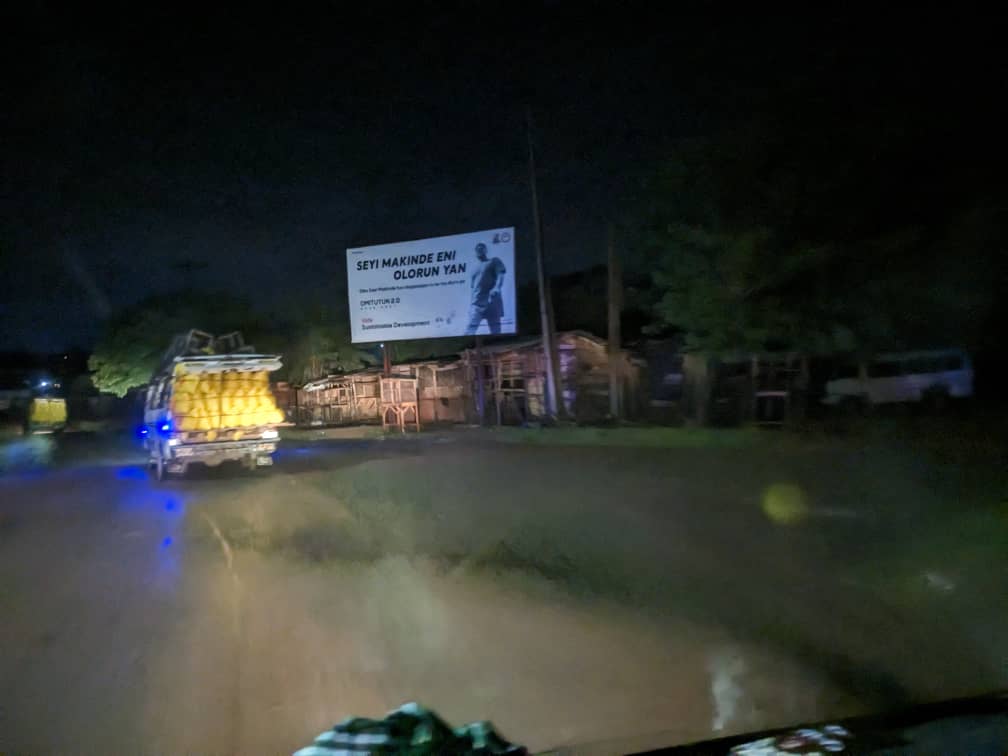
In Nigeria, the daily experience of these drivers is not unusual. It is quotidian for law enforcement officers to extort money from Nigerians. Some other drivers FIJ interviewed also had the same story of extortion to tell. Security officials will not stop anytime soon, but transporters have become frustrated.
IMPACT: INCREASED FOOD PRICES, MILKING DRIVERS DRY
Data accuracy on the impact of police extortion on farm produce transporters sometimes might be challenging. However, evidence lies on the lips of the victims and in an avalanche of news reports. In this case, the drivers revealed that the money security agents collected from them were between N2,000 and N3,000 on a daily basis. While the transporters are not comfortable, they are helpless.
Hammed, the driver earlier mentioned, delivers varying sums of money to the bus owner depending on how much he realises from each trip. It could be N25,000 sometimes.
“Having to settle police and FRSC officers on every trip is stifling. Transportation is an important business in Nigeria, but the environment in which we operate is killing,” he said.
“Struggling to bargain a fair fee with our customers is one challenge, it is another challenge to be rubbing the palms of security officials with money on blemished roads. All of these issues have remained permanent. In a way, it determines how much an average consumer pays for a product.”
“As a young man,” Hammed said, “I am not living a life I have always dreamt of in this industry. I work myself silly because I know I have the energy, but it is not enticing knowing that I have to give a portion of my income to them (security officials) without running foul of the law. I am not living my dream life with this transportation business.”
Hammed conveys food crops from Osun State to Lagos State at least twice a week. His fellow transporters also frequent the state every other time to deliver agricultural items to marketplaces in the state. If he travels twice a week, N4,000 of his income goes into security officers’ pockets on the average. With two trips in a week, he would lose N192,000 to security officers in a year.
Some drivers, however, drive without necessary requirements and when they are caught, they plead to pay for their freedom, Hammed said. But most times, uniformed agents are not after vehicle papers, they just want to collect their usual bribe, depending on what a bus carries. It is this kind of greed for money that stimulates the seamless movements of dangerous items.
Food transporters’ biggest desire in 2021 was the eradication of extortion and harassment by security officials, according to SBM Intelligence, an Africa-focused geopolitical research and strategic communications consulting firm.
“On the other hand, transporters’ unique concerns were mainly around multiple taxation and incessant harassment from security personnel and local government officials,” the report read in part.
Members of the public have a full view of how security extortion influence prices of foods in the market. It is not absurd to hear a driver being harassed or cheated by police officers on the road.
The amount paid by each driver in settling government officials on the road varies. Officials encountered in the course of this investigation were police and road safety officials. However, Adesegun, a driver who transported a truck-load of yam tubers from Ekiti State to Lagos State, told this reporter he met mostly soldiers on the route he drove on and spent close to N15,000 simply because his truck was fully loaded with yams.
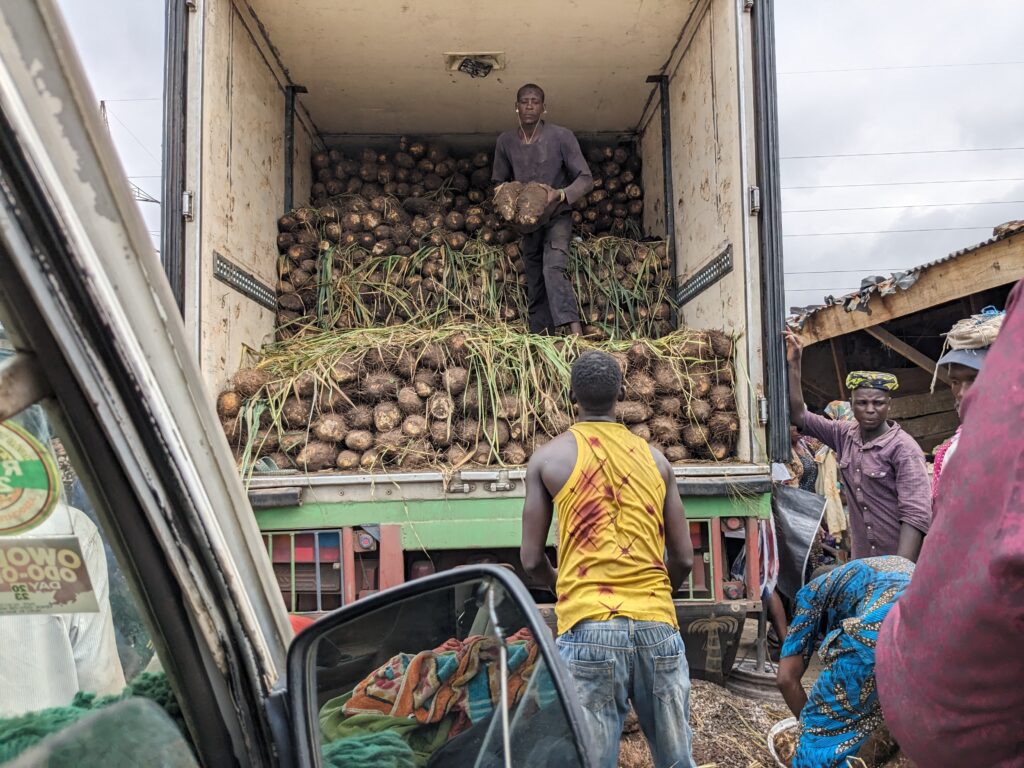
“Once the soldiers saw that it was yams that were in the truck, they insisted on collecting N1,000. Only a few of them collected N500 at their checkpoints. I spent close to N15,000 from Ekiti to Ajegunle Market despite the fact that the trip was overnight.”
The final destination of these drivers was Lagos State, a state with a landmass of 356,861 hectares. Of this total geography, 169,613 hectares are reserved for agriculture, but only 30% has been utilised. With its crop production at 18 percent, the state relies on other states to offset its deficit.
Meanwhile, the NBS report shows that Lagos State’s food inflation on a year-on-year basis is 32.52 percent in July, the highest figure after Kogi State’s 34.53 percent.
The year-on-year food inflation, according to the statistics bureau, was significantly caused by increases in the prices of potatoes, yams and other tubers, meat and other items.
POLICE BOSSES MAKE OFFICERS EXTORT — ASP
Security agencies tell Nigerians that they have zero tolerance for extortion and intimidation of the public. But can we take their word for it?
Experience, they say, is the best teacher. While the police, for instance, are quick to issue statements each time their officers are caught on camera extorting money from drivers, a senior police officer told FIJ that the system is wired to make officers extort the public.
Yakubu Christopher (not real name), an Assistant Superintendent of Police (ASP), revealed to FIJ that there are different beats in the police force and officers work according to the beat assigned to them. Whatever the beat, however, there are financial expectations from any police team.
“Security checkpoint is one beat and they come with financial responsibilities,” Christopher said. “So, when a policeman has been given a beat, he is expected to come back home with something at the end of the day to show how ‘productive’ he was.”
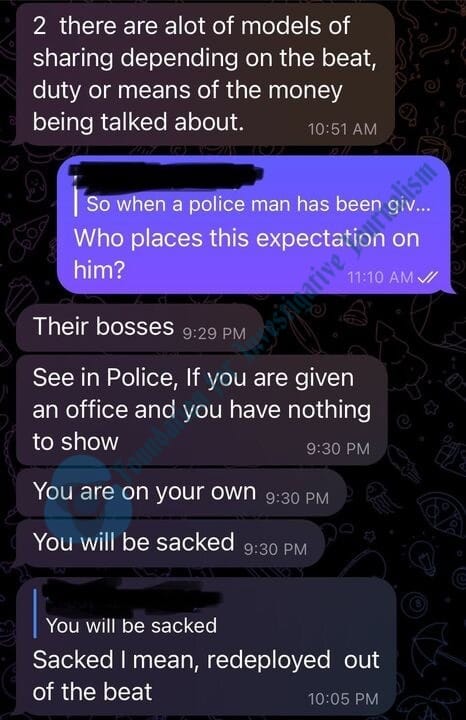
We asked the assistant superintendent of police how proceeds are shared. According to him, a blend of formula exists based on the beat in question. As financial expectations are placed on officers by their bosses, they cannot afford to return empty-handed. Otherwise, they would be considered unproductive.
“There are a lot of models of sharing depending on the beat, duty or means of the money being talked about,” Christopher explained.
“See, in police(sic), if you are given an office and you have nothing to show, you are on your own. You will be sacked. By sack, I mean you will be redeployed out of that beat.”
“It is sad that police officers extort money from vehicle owners and transporters,” said Alabi Jamiu (not real name), an inspector police (IP).
“But it is also a sad reality that I think cannot go away and I will give my reasons. Police officers are not earning enough and this forces many of us to service dip our hand into many things. We don’t get money to fuel our patrol vehicles, we pay for our uniforms personally. Most public transporters are even happy to pay because they don’t have a complete ownership documents.
“If a police officer gets N20,000 from a checkpoint, his own share is just ten percent. The rest goes to the divisional police officer (DPO). Further, the DPO sends a certain percent to the area commander who in turn remits a portion of the money to the commissioner of police at the state command. It goes on like that. Even the inspector-general of police (IGP) cannot claim ignorance of this money trail.
“Sometimes, an officer could go on the road just to make some quick money. In this case, if he is caught, his boss can deny him. At all times, an officer must carry their superior along before going on such operation so as to get their protection if things go wrong.”
READ ALSO: THE INSIDER: From Normal Orphanage, How Arrows of God ‘Became a Baby Factory’
Muyiwa Adejobi, Police Public Relations Officer, did not answer calls put through to his phone on August 22. FIJ sent a text message to the assistant commissioner of police on the same day briefing him about FIJ’s findings, but he had not responded at press time.
However, Adejobi recently told the nation that Kayode Egbetokun, the acting Inspector-General of Police (IGP), had ordered an assessment of key police checkpoints in Nigeria to ensure that “checkpoints are strategically placed and effectively managed, devoid of extortion and corrupt practices, and minimizing any inconveniences to the public while maintaining public safety.”
A lot of issues depend on fixing police extortion. It does not have to be like this forever, but the drivers don’t know when it would stop.
Editor’s note: We used the first names of the drivers in this story to protect their identities because they ply the route regularly and could be easily identified.
Produced with support from the Wole Soyinka Centre for Investigative Journalism (WSCIJ) under the Collaborative Media Engagement for Development Inclusivity and Accountability project (CMEDIA) funded by the MacArthur Foundation
Subscribe
Be the first to receive special investigative reports and features in your inbox.


